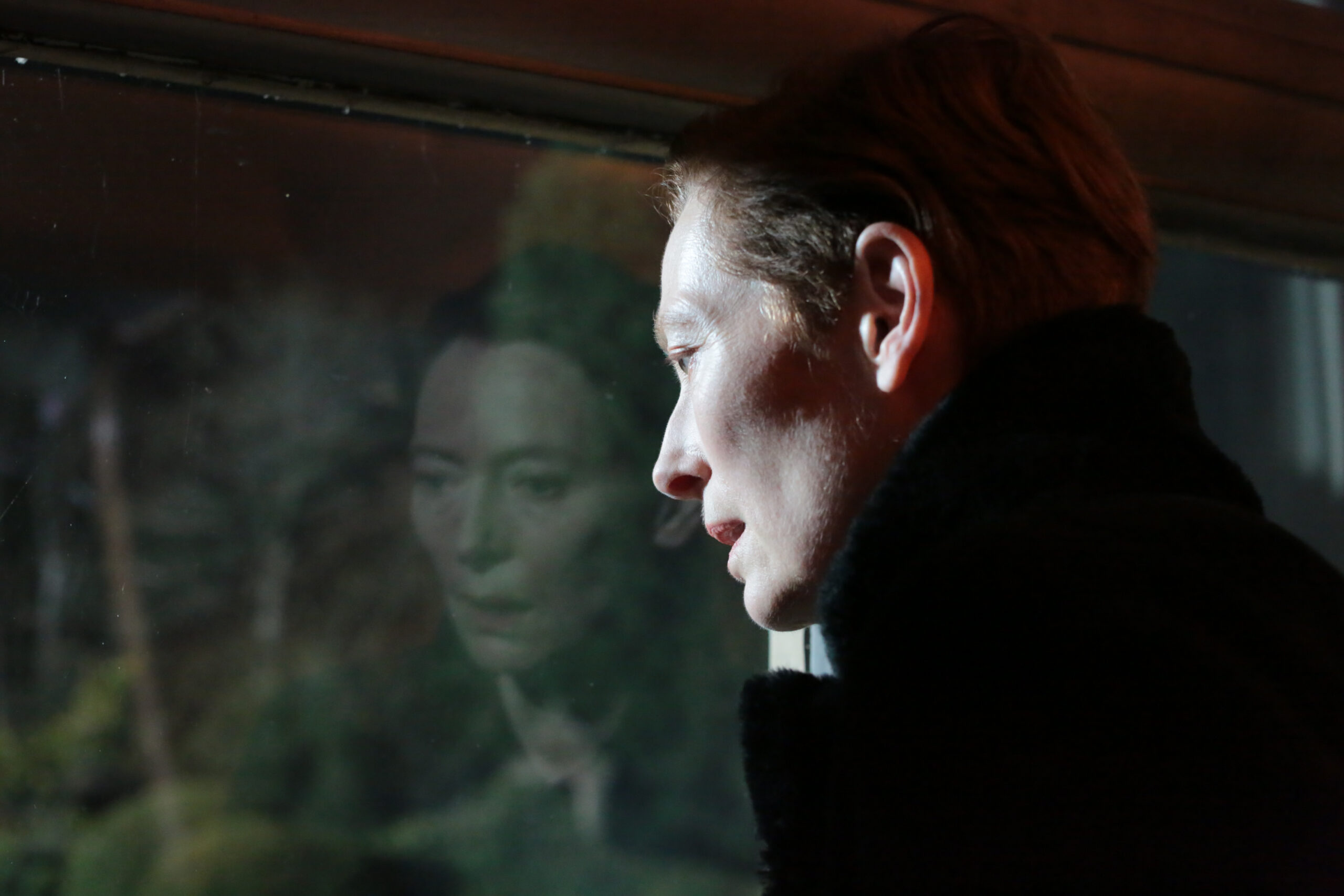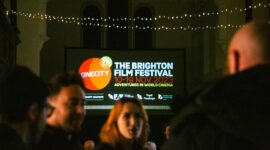
STUDENT REVIEW: THE ETERNAL DAUGHTER
by Ben Peake (University of Sussex)
Reviewed as part of CINECITY The Brighton Film Festival – Duke of York’s 12 Nov 23.
The Eternal Daughter (2023, Dir. Hogg) is a spiritual sequel to Joanna Hogg’s previous film The Souvenir (2019). It tells the story of Julie (Tilda Swinton) who is a filmmaker taking her mother Rosalind (also played by Swinton) to her old family home-turned-hotel for her birthday, attempting to learn about her mother for her next film. However, the underlying narrative presents a daughter trying desperately to connect with her elderly mother, alongside a filmmaker who is unsure if she can make a film about someone she does not feel she truly knows.
The dual performance given by Tilda Swinton is truly the knot that ties every element and theme together and it is accordingly that we spend the majority of the runtime with these two characters. This is barring the witty Hotel Receptionist (Carly-Sophia Davies) and eerie groundskeeper Bill (Joseph Mydell) who appear in bursts to give the film a tone at times reminiscent of The Shining (1980, Dir. Kubrick).
The Eternal Daughter attempts and succeeds at being a ghost story where the premise isn’t to scare you, but to create a grand sense of dread that is kept until the end of the film when it is released.
Key to the creation of this dread is the repetition featured in the central locations of the film; the bedroom, the dining table, and the foggy grounds of the hotel are visited daily with a whole lot of nothing happening inside them. The idea of waiting for an element of the supernatural or something to happen is what creates this anxiety. The cinematography by Ed Rutherford also boosts up these anxieties with extremely long shots of the hotel that dwarf the inhabitants inside it or dutch angles of the dark stairway at night where anything could hide in the shadows. It’s through this that the hotel asserts itself among the cast with its dominating presence.
Enigma codes and mysteries are scattered throughout the film with the central one being Julie’s mother, Rosalind, established from the very first shot of her inside a lightless taxi obscured from vision and connection. These codes bring up questions regarding the lives of our parents as spectators, and whether we can truly know them in the sense Julie attempts to. Their lives before we are born and after we have matured seem to be foggy to us much like the cold gardens of the hotel. The film potentially points to the audience that in becoming parents, we can understand our ones better. After alluding to this, the narrative reveals the tragic fact that Julie has no children, her commitment to her mother meant she neglected the idea, and potentially as a result, is dammed to a state of disconnect with her mother. Despite this she doesn’t cease to try to extract information from her mother, asking her if certain locations or actions evoke memories; when they do, the experiences are told in grand monologues in intimate close-ups that I was unable to take my eyes off. I became as invested in the retelling as Julie in the moment.
From all these connected ideas emerges a profoundly personal film that attempts to comment on the power of places to evoke powerful memories; also how we can never truly know our parents and the lives they live parallel to us. This is familiar territory for Hogg and she navigates it in ways that had me glued to the screen.
